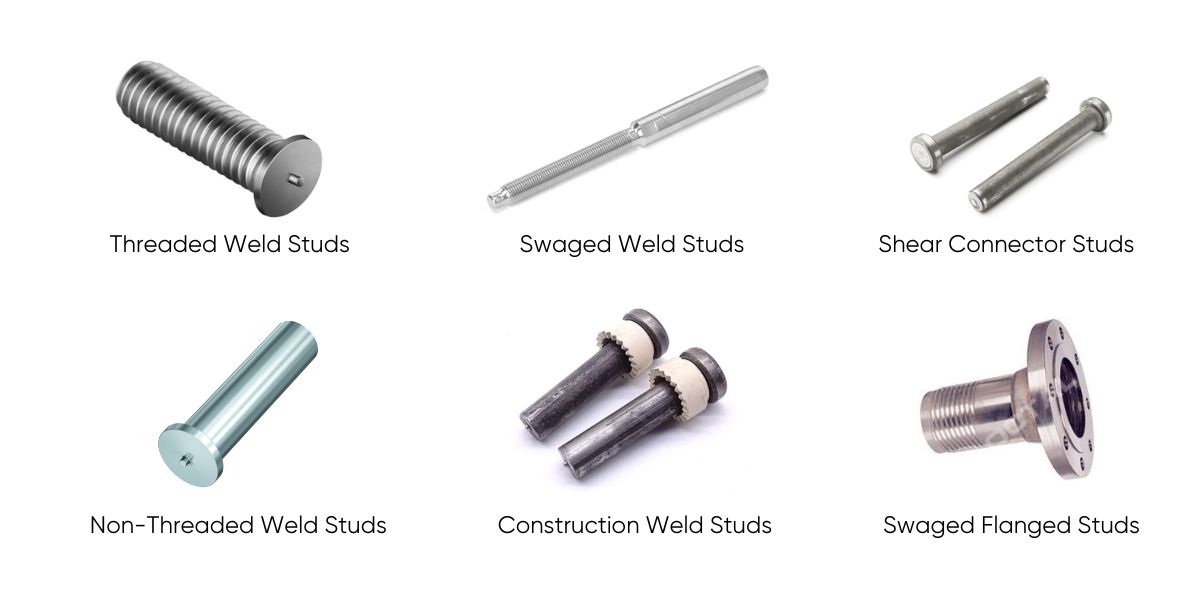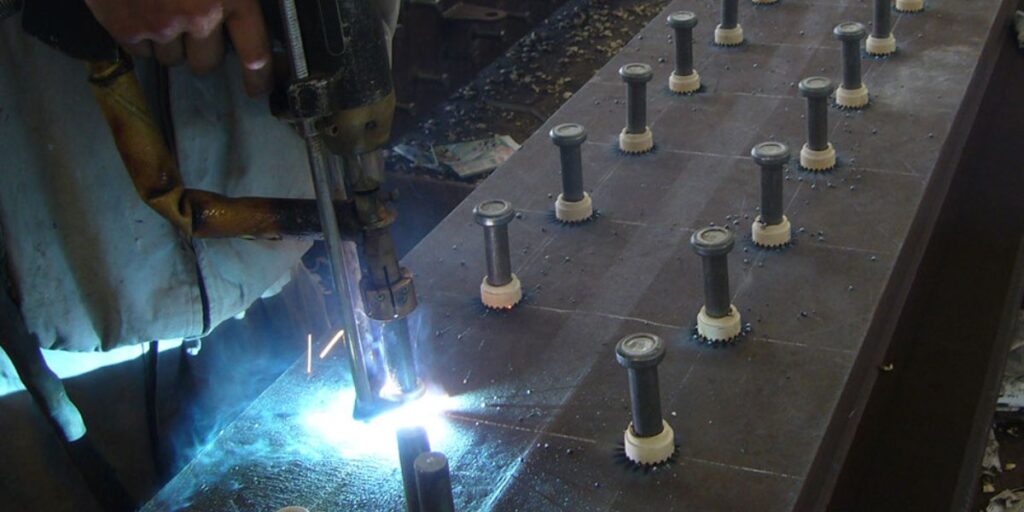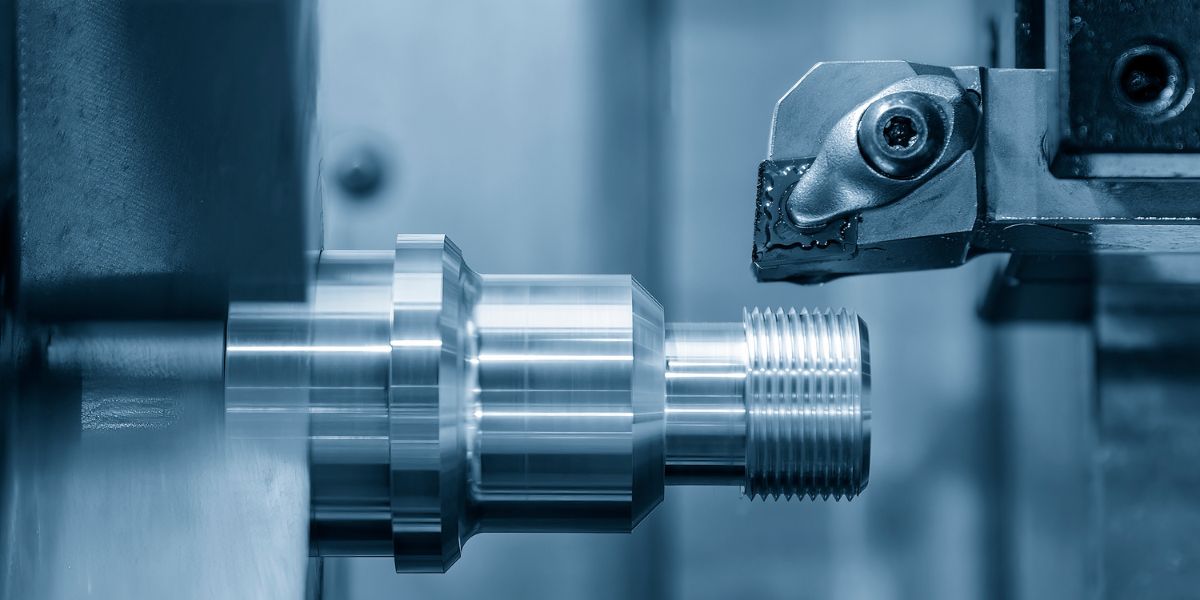Exploring The World Of Weld Studs: Types And Uses
Have you ever wondered how those neat little hooks support massive metal structures? The secret lies in a modern marvel that is often ignored by most of us. The world of construction and fabrication relies on these mighty mini marvels known as weld studs. They provide a robust way to attach various metallic elements to metal surfaces. In this article, we will take you on the journey of types of weld studs and touch upon their purpose.
What Are Weld Studs?
Weld studs are specialized fasteners permanently attached to a metal surface using the stud welding process. They are similar to bolts and have a threaded body, but instead of a nut, they have a designed end for welding. These studs are available in different shapes and sizes. They are made from mild steel, stainless steel, and aluminium.
Common Types Of Weld Studs
There are many weld studs, each with a different purpose and use. Let’s look at some of the most commonly used welding champions.

Threaded Weld Studs
Threaded weld studs have various threads attached along their entire length and sometimes with a portion of it. They are also known as dark horses of the stud welding world. These weld studs are popular because they weave an easy path to attach components like nuts, washers, and fasteners.
These are widely used in construction, automotive, and electrical applications. Threaded weld studs are perfect for securely mounting a control panel on a steel frame. They allow easy attachment and subsequent fastening of the panels with nuts and bolts. Bhansali Techno Components is a premier
threaded bar manufacturer and various types of weld studs provider. Standard threaded stud prices range from US$0.07 – US$1.17, which makes it a favourite among industries.
Swaged Weld Studs
These are used with high-load applications. They have a pre-formed bulge at the attachment end, made with the help of swaging, a metal shaping technique. The benefit of this bulge is that it creates a larger weld area than standard weld studs. The increased surface area also prevents the building of excessive heat in the stud and surrounding metal.
The swaging process usually creates a slightly roughened surface on the bulge. This provides a better interlock between the stud and molten weld metal, making the structure and joint sturdy. Weld studs are primarily used in heavy machinery like cranes, excavators, and industrial presses.
Shear Connector Studs
These weld studs have shear strength. Their head design on one end allows them to penetrate the concrete. These weld studs help in composite construction, in which concrete and steel elements work together. They play a connecting role and ensure a reliable connection between two items. These weld studs bind the concrete deck to the steel beams, creating a strong structure.
Non-Threaded Weld Studs
These weld studs hold a unique place in the world of fastening. They have varied degrees of versatility and are helpful in various applications. These weld studs lack the traditional screw threads, which are usually seen in most studs. These studs are easily cut into precise lengths that can be used to meet specific application needs. There is no need to heat and melt during welding. It results in faster welding and more efficiency. The Non-Threaded Weld Studs are used in HVAC Systems, electrical enclosures, and furniture manufacturing.
Construction Weld Studs
Construction weld studs are important in construction projects. They offer fast, strong, and versatile ways of securing different elements. They have benefits like speedy application, as they are directly welded onto the base metal, reducing installation time. Construction wels studs also create a high-strength joint that withstands significant loads. Construction weld studs are mostly used in metal cladding, electrical and mechanical systems, plumbing and fixtures, concrete anchors, etc. With these studies, construction professionals can achieve efficient and secure connections.
Capacitor-Discharge Weld Studs
Capacitor discharge (CD) weld studs are used to attach studs to thin sheet metal. CD welding uses a quick burst of electricity to melt the stud’s tip and the surrounding base metal. It has a spring mechanism that forces molten materials together, which forms a strong weld upon solidification. There is no need for pre-drilled holes, thus minimizing the heat input. These are mostly used in the automotive, appliance, and sheet metal fabrication industries.
Flanged and Swaged Flanged Studs
Flanged and swaged flanged studs are the ultimate game changers in the world of weld studs. They help attach elements to thin metal sheets, have additional stability on vertical or overhead surfaces, offer superior strength, and ensure clean welds. These specialized studs are the key to a successful connection. They are produced in industries like
flange manufacturers with high-quality materials.
Advanced Process Weld Studs
We have examined some everyday weld studs, but advanced process weld studs are the flag-bearers for specialized applications that demand specific characteristics.
Short Cycle Weld Studs
Short-cycle weld studs are specifically designed for high-volume and automated welding processes. They are welded using shorter weld times compared to traditional arc stud welding. A shorter time means less heat generation and less heat transferred to base metal, which is used in sheet metal applications. It also results in less heat distortion, which ensures the overall strength of the welded joint.
Gas Arc Weld Studs
Gas arc weld stud comes into play where the base metal or stud metal demands a controlled welding environment.
Shielded Welding
Shielding gas is used to weld the studs. It uses argon or a mixture of argon and other gases to heat and weld. The controlled atmosphere protects the molten weld pool from contamination by oxygen and nitrogen in the atmosphere.
Reduced Oxidation
Aluminum and Magnesium are highly sensitive to oxidation at high temperatures. The gas arc with inert gas prevents oxidation, ensuring a clean and strong weld joint.
The Enduring Strength Of Weld Studs
Bhansali Techno Components is a
precision component manufacturer that has been in business since 2012. They manufactures weld studs for domestic and international markets at competitive prices. So the next time you come across a modern marvel like a skyscraper, high-speed train, or a simple household appliance, take a moment and appreciate the weld studs that have helped in their creation. Weld studs play a crucial role in our environment, so whenever you come across any weld stud, just stand and remember its vital component in the world around us.




